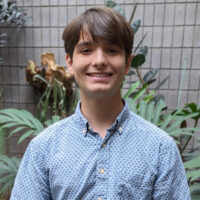
Investigating How Glucose Regulates Protein Modification to Influence Longevity in Caenorhabditis elegans
Glucose is known to decrease the lifespan of C. elegans. One way it does this is by causing atypical protein modifications. While some of these protein modifications can activate the mitochondrial unfolded protein response (UPRmt), it is unknown if chromatin remodeling can induce epigenetic marking with methylation or acetylation in C. elegans when fed glucose (Alcántar-Fernández J., 2018; Tauffenberger, 2016). To investigate this, we cultured C. elegans on nematode growth media (NGM) until the animals reached L4, the final stage of development. The worms were then transferred onto glucose NGM too chronically expose them, or onto non-glucose NGM to only expose them during development, eventually with all worms to be collected. We performed a Western Blot of C. elegans with H3K4me3, H3K9me3, and acetylation to analyze the significance of epigenetic modifications. Our research reveals that the longevity phenotype of developmental glucose supplemented worms undergoes a change in methylation at day 1 to unmethylated at day 5 compared to that of worms with chronic glucose supplementation, suggesting that changes in methylation may contribute to lifespan. Additionally, glucose-associated diets demonstrate a decrease in protein and histone acetylation, further showing us the importance of epigenetic modifications in regulating longevity in C. elegans.
Having the opportunity to be a research intern at Boyce Thompson Institute for the past few months has profoundly contributed to my development as a biochemist, and it is certainly an experience that I will cherish forever. Not only did I learn a lot about epigenetics, longevity, and metabolism in C. elegans, but I also acquired a plethora of laboratory skills, such as running experiments, culturing C. elegans, and Western Blotting. Furthermore, I can now conduct research successfully both independently and collaboratively in a lab cohort with confidence. I want to acknowledge my mentor, Arnaud Tauffenberger; my lab’s principal investigator, Frank Schroeder; and a graduate student in the Schroeder lab, Payton Netherland, for giving me this incredible experience and teaching me all the lab skills. The insightful techniques and confidence I gained from my BTI experience enlightened my enthusiasm to pursue my future scientific career. Thank you for everything!
